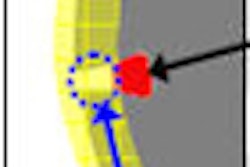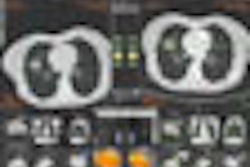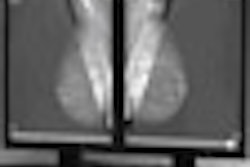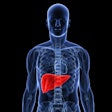Dear AuntMinnie Member,
This week in our Advanced Visualization Digital Community, we're featuring a new study that demonstrates the value of computer-aided detection (CAD) software in lung CT studies.
German researchers wanted to find out if a CAD algorithm would still function adequately in low-dose MDCT studies, compared to standard-dose MDCT. They found that CAD enabled radiologists to perform at almost the same level regardless of the dose used. What's more, it brought the performance of a resident radiologist to almost the same level as a more experienced radiologist. Get more details by clicking here.
In related news, Italian researchers discuss their work in developing an algorithm for measuring lung nodules that they believe could help track nodule growth over time. That story is available by clicking here.
In our last advanced visualization story, find out which multimodality vendor recently announced a big investment in the future of 3D by clicking here.
Can breast cancer disappear?
In other news, have you heard about the study making waves this week, claiming to have found evidence of breast cancer disappearing? Norwegian researchers compared breast cancer rates among two groups of women who received mammography screening and found that cancer rates were higher among those who were screened less often.
Does the study offer evidence of the "spontaneous regression" of cancer, as the authors claim? Or are there other forces at work? Find out for yourself by clicking here.
AuntMinnie's RADCast @ RSNA 2008
Finally, this will be our last Letter from the Editor until the RSNA show opens on Sunday. For our U.S. readers, we hope you enjoy the Thanksgiving holiday. For all our members, we look forward to speaking with you from Chicago, where you can follow the action from radiology's showcase conference in our RADCast @ RSNA at radcast.auntminnie.com.



















